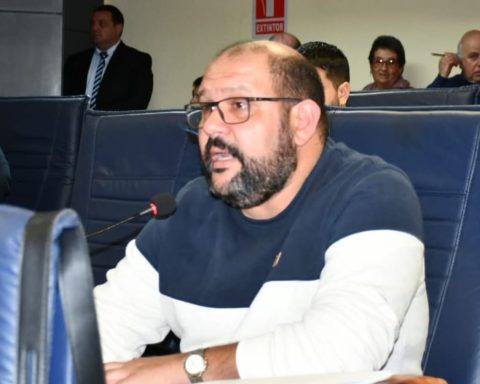Uruguay is changing the way it approaches investment for development said the vice president of countries of the Inter-American Development Bank (IDB), Richard Martínez. In this sense, highlighted the issuance of the bond indexed to the climate commitment to then consult the Minister of Economy, Azucena Arbeleche: What is next for the country in terms of climate actions?
To begin his presentation, Arbeleche assured that several of the government portfolios worked for the issuance of the bond: “We unite economic policy with climate policy“, he pointed.
Then -and focusing on the importance of climate actions for the future of the country-, he explained that the impact of Environmental, Social and Governance (ESG) factors are changing the production and marketing paradigm in the world. “The good levels that our country has in this regard translate into Uruguay’s rating,” the minister said. Furthermore, she remarked that she lhe attraction of foreign investment demonstrates Uruguay’s strength in ESG factors.
Arbeleche stressed that currently, the focus is on actions related to climate change because that is where the greatest momentum is at the level of society. “From now on, companies will be required to have an environmental seal to invest in them”. In this sense, he highlighted that the issuance of the indexed bond linked to climatic aspects is a concrete commitment of Uruguay in this matter.
“In an uncertain scenario, Uruguay stands firm in its commitment to the environment,” said Arbeleche.
In addition, the minister stressed that to stand in this way, Uruguay joined the private with the public because Without this joint effort, environmental goals cannot be achieved.
Finally, Arbeleche stressed that it is the first time that a country has a consequence for complying with what was agreed in the Paris agreement. “There is no country in the world where there is a concrete consequence for not complying with what was agreed upon,” said the minister.
In this regard, he stressed the importance of long-term national policies. And he remarked that the 2017 Paris agreement was signed in another government, that this bond is issued in the current administration and it will be in about three years, in another government, when its results will be measured. “They are state policies, which go through different governments,” he said.
The bonus also YoIt implies the conservation of native forests and biodiversity. “Being free of deforestation is going to become an extremely important aspect,” the minister remarked, recalling the value of the country being free of foot-and-mouth disease.
In other aspects, the minister pointed out that the country is also on a path of electric Mobility, and also referred to green hydrogen. “Economic policy has to give the right incentives to be able to move forward,” he said, adding that the private sector must work on it.
In turn, he noted: “It is time for multilateral organizations to be willing to give loans where the interest rate is committed to environmental aspects.”
“This is only the beginning, Uruguay stands to achieve these incentives”, he pointed. Arbeleche stressed that for the next series the country includes a macroeconomic model. “Uruguay is at the forefront,” she concluded.

















